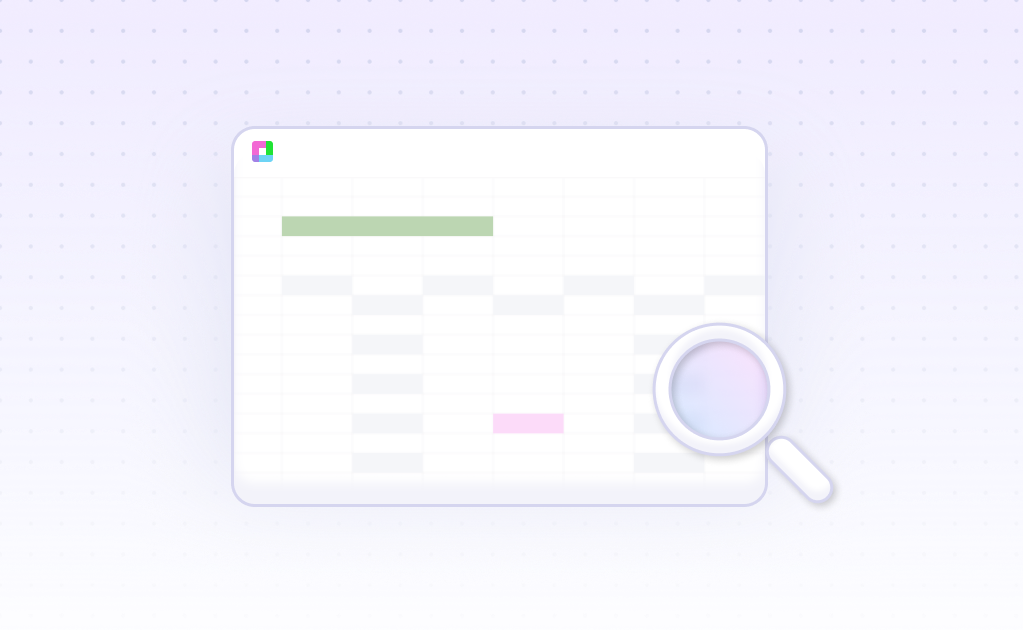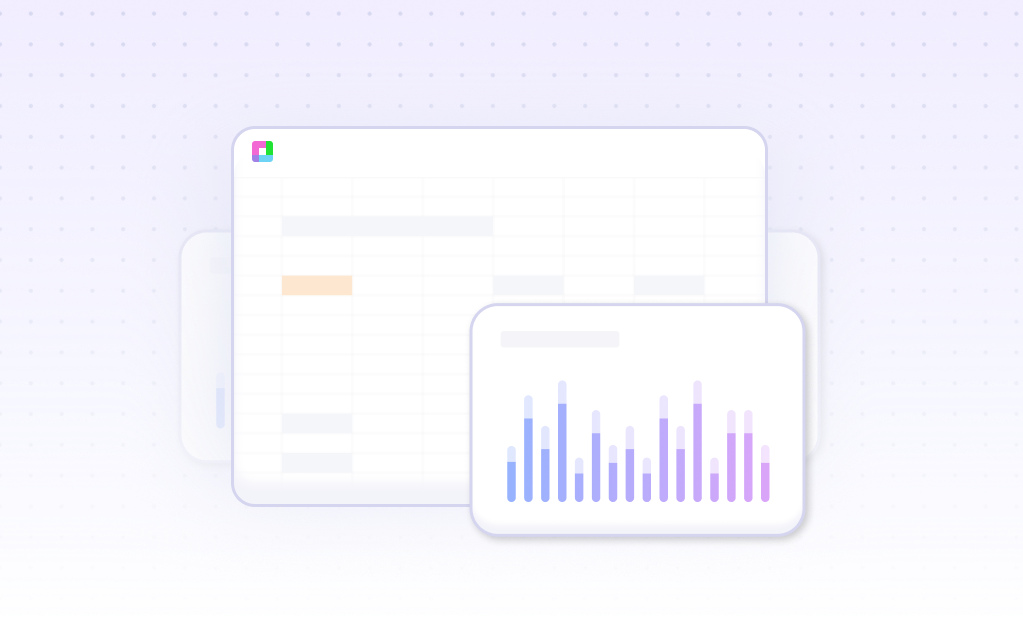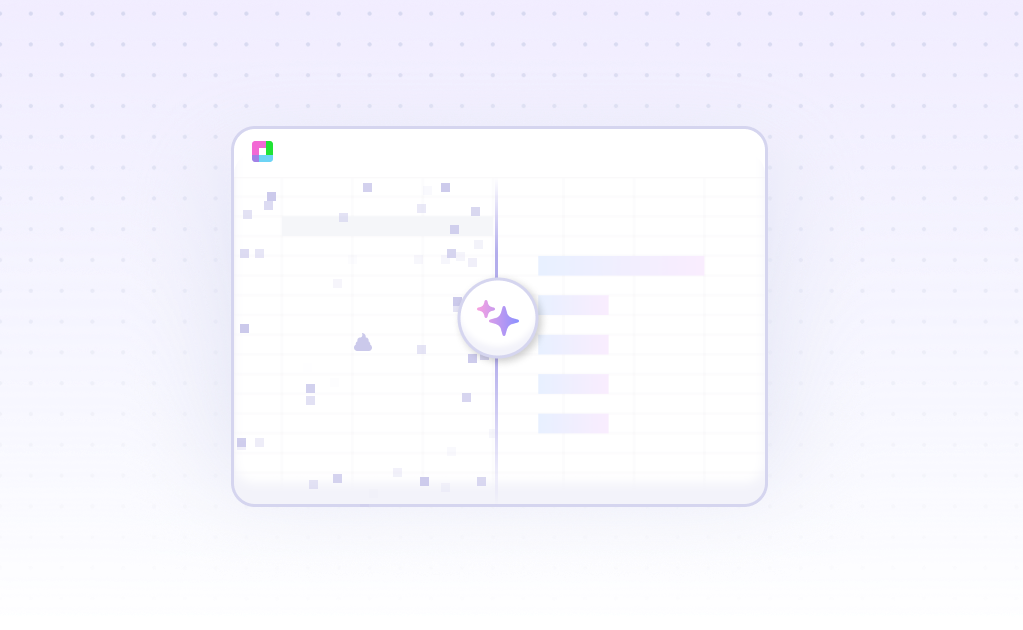
Introduction
Training needs analysis helps organizations identify critical employee skills and knowledge gaps. Learning and development teams traditionally conduct this analysis using Excel spreadsheets, partnering with management to inform learning strategies and prioritize training initiatives. While Excel templates provide a foundation for needs analysis, modern AI solutions offer enhanced efficiency.
Sourcetable, an AI-powered spreadsheet platform, combines spreadsheet functionality with an intelligent chatbot interface. It streamlines the needs analysis process through natural language commands, automated data cleaning, and built-in charting capabilities. Unlike traditional Excel workflows, Sourcetable requires no advanced spreadsheet skills to generate meaningful insights.
Learn how to leverage Sourcetable's AI capabilities for comprehensive training needs analysis - try it today.
Sourcetable: Superior Ethical Needs Analysis
Sourcetable combines Excel's presentation capabilities with enhanced data summarization features. Its AI-powered analysis identifies unethical behavior, biases, and problematic data sources more efficiently than human review.
While Excel requires complex formulas, Sourcetable's natural language processing enables direct data questioning. Users can generate targeted analyses by selecting specific fields and leveraging suggested questions, streamlining the ethical review process.
Sourcetable transforms analysis results into actionable visualizations and reports automatically. This comprehensive approach makes it the optimal choice for conducting thorough ethical needs assessments while maintaining the familiar spreadsheet interface.
Benefits of Ethical Needs Analysis with AI-Powered Spreadsheets
Embedding ethics in company culture through needs analysis yields tangible returns through employee loyalty, customer retention, and brand respect. A well-structured code of ethics creates clear behavioral frameworks for stakeholders while building reputation and attracting quality talent.
Key Benefits of Ethical Analysis
Ethical needs analysis establishes standard practices for internal and external behavior while managing conflicts of interest. Companies demonstrating social responsibility through ethical frameworks gain competitive advantages through improved compliance and customer trust.
AI-Powered Analysis Advantages
AI-driven spreadsheet tools reveal hidden patterns and trends within ethical analysis data, enabling deeper insights for strategic decision-making. By automating repetitive tasks like data entry and cleaning, AI frees analysts to focus on high-level strategy development and implementation.
Examples of Ethical Needs Analysis with Sourcetable
Sourcetable enables structured data collection and analysis for ethical AI assessment across organizational, task, and competency levels. The platform facilitates source-to-target mappings for analyzing public databases and correlating data with specific domains.
Organizational Ethics Analysis
Teams can create test datasets to evaluate AI recruitment tools for gender bias through Sourcetable's data management capabilities. Source tables provide descriptive data for Data Vault links and hubs, enabling comprehensive analysis of AI systems' social impact.
Privacy and Performance Analysis
Sourcetable's multiple dataset management allows teams to conduct privacy risk assessments in AI applications. Teams can simulate different loading scenarios to analyze energy consumption in machine learning model training and validate algorithm predictions.
Specification-Driven Analysis
Through source-to-target mappings, Sourcetable streamlines ethical needs analysis by allowing teams to work from standardized specifications. This approach eliminates the need for repeated consultations with subject matter experts while maintaining consistent evaluation criteria.
Use Cases for Ethical Needs Analysis with Sourcetable
Bias Detection in Public Health Data |
Use Sourcetable's structured data collection capabilities to analyze public health databases for potential biases. Create source-to-target mappings to identify discriminatory patterns in disease correlation data. |
Automated Data Validation for Compliance |
Employ Sourcetable's AI-powered anomaly detection to ensure compliance with healthcare regulations. Create test data sets to validate coding and simulate different loading scenarios for regulatory reporting. |
Ethical Risk Assessment in Clinical Studies |
Utilize Sourcetable's NLP capabilities to analyze sentiment and context in clinical study data. Create specifications for merging multiple data sources while maintaining ethical guidelines for patient privacy. |
Healthcare Resource Optimization |
Apply Sourcetable's predictive analytics to optimize resource allocation while ensuring equitable access to healthcare services. Use automated insights to identify patterns in service delivery and potential disparities in care. |
Frequently Asked Questions
What is ethical needs analysis in Sourcetable?
Ethical needs analysis in Sourcetable is a process for evaluating community-based programs that focuses on responsible data collection, economic evaluation, and ethical decision-making while navigating issues of scientific accuracy, institutional inequality, and research utility.
What are the key benefits of conducting ethical needs analysis in Sourcetable?
Key benefits include building trust with customers through responsible data use, facilitating program sustainability efforts, supporting economic evaluations for program planning, and helping mitigate legal risks while ensuring transparent analysis of community interventions.
How do you conduct an ethical needs analysis in Sourcetable?
To conduct an ethical needs analysis in Sourcetable, you should identify community ethical needs, evaluate existing applications, use flow charts for ethical analysis, ensure transparency about methods and results, include detailed appendices explaining methodology, and consider how estimates apply to local conditions. It's important to properly value community partners' time and model uncertainty in estimates.
Conclusion
Training needs analysis helps organizations identify critical skills gaps and prioritize learning initiatives effectively. While Excel spreadsheets remain a standard tool for conducting this analysis, modern AI-powered alternatives like Sourcetable offer enhanced capabilities. Sourcetable combines spreadsheet functionality with AI assistance to streamline the analysis process, saving time and providing data-driven insights.
By leveraging Sourcetable's natural language processing and integration with over 100 data sources, learning and development teams can efficiently analyze training needs, identify patterns, and generate evidence-based recommendations. This AI-powered approach accelerates the traditional spreadsheet-based workflow while maintaining the collaborative nature of needs analysis between L&D teams and stakeholders.
Ready to transform your training needs analysis process? Try Sourcetable's AI-powered spreadsheet solution at sourcetable.com/signup.
Recommended Analysis Guides
Connect your most-used data sources and tools to Sourcetable for seamless analysis.
Frequently Asked Questions
If your question is not covered here, you can contact our team.
Contact Us




